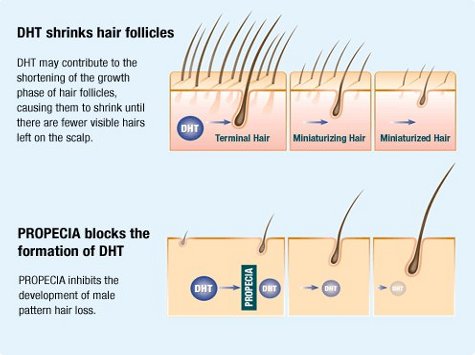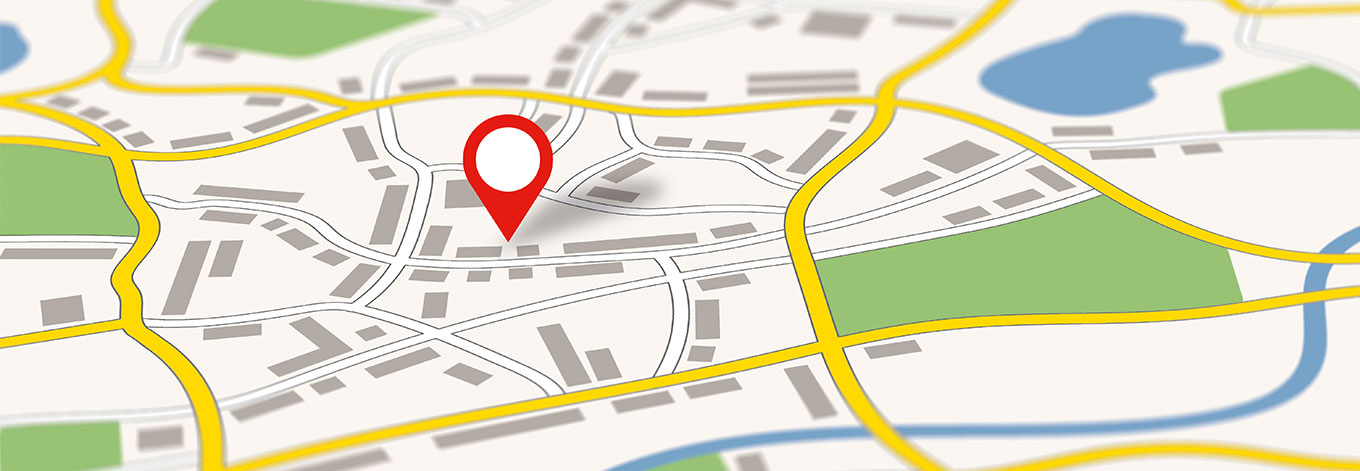
The Pros and Cons of Hair Loss Medication, including the Side Effects
Hair Loss medication is very popular and there are many reviews on the internet but what’s the real truth behind them? Are they worth it? What about side effects? We help answer some of the important questions about hair loss medications in this blog post.
Countless thousands of people are on the two main types of hair loss medications: Minoxidil (brand names include Regaine) and Finasteride (brand names include Propecia) happily and successfully. However, as with any medication, there are pros and cons, including potential side effects, you should be aware of before getting a prescription. One of the most talked about issues with hair loss medication involves Finasteride’s reported side effects, which include sexual dysfunction in a small number of people taking it. We wanted to clear up the facts and myths surrounding this issue and offer our advice.

What is Finasteride and how does it work?
Finasteride, also known as Propecia, is a medication that is ingested and it is used to prevent the formation and effects of DHT (dihydrotestosterone) – the big reason behind male pattern baldness. DHT is formed from testosterone – a hormone associated with male characteristics. DHT is involved in the process of ‘miniaturisation’ – where the hair and hair follicle becoming increasingly smaller and thinner until some of the hair follicles stop working altogether, hence male pattern baldness. Finasteride is technically a 5α-reductase (an enzyme) inhibitor that blocks this enzyme from converting testosterone into DHT.
Propecia is most effective when taken in the early stages of male pattern baldness by men who are in their 20s or 30s. Older men at later stages of male pattern baldness can still benefit from Propecia and many experience significant slowing to their pattern of hair loss and some even notice some degree of hair growth returning to their hair.
Propecia and Sexual Dysfunction
Lots of research is taking place into the side effects of the medication. Data from 6 Propecia trials indicated that between 6-8% of recipients experienced erectile dysfunction. 14% of cases from FDA data from 1998-2011 reported persistent sexual dysfunction but the FDA made it clear this is not an established causal link, as there could be a number of reasons why these recipients experienced such issues.
Propecia and Alcohol
Studies are pointing to some evidence that taking finasteride decreases the desire for alcohol or the ability to handle alcohol as well as before, thus reducing consumption. Research into this is still being conducted. It is not currently considered a treatment for excessive alcohol intake.
What are the Pros and Cons of Finasteride?
Pros
- Effective management of male pattern baldness
- Easy to take and get with a prescription
- One of very few medications with a lot of research into its effectiveness
Cons
- Reported side effects must be considered before taking it as potential side effects include sexual dysfunction which may be persistent (i.e. continue after taking the medication for a period of time)
- Not advised for people who have previous heart conditions
What is Minoxidil?
Minoxidil, often referred to as Regaine, is a topical medicated treatment for hair loss. The medication was originally designed to treat high blood pressure but in 1987 scientists developed a topical minoxidil solution that was suitable for treating both male and female hair loss.
The full science and mechanism behind minoxidil is still not fully understood but what is known is that it works as a vasodilator which is something that widens the blood vessels. So when applied directly to the scalp it works to increase blood supply and nutrients to your hair follicles helping to strengthen the existing hairs and encourage them to grow. It also helps to reverse the miniaturisation of follicles by stimulating the hair follicles to move to the anagen (growth) phase and stay in this phase for longer by shortening the telogen (resting) phase of hair growth.
Like Finasteride/Propecia, Minoxidil is best used in early stages of hair loss where there are hair follicles left for the solution to work on. Minoxidil is not able to revive dead hair follicles so if you are in the advanced stages of balding, this may not be the most effective treatment.
What are the Pros and Cons of Minoxidil?
Pros
- Known to be effective on people with patchy hair loss
- Can be purchased over-the-counter
- Safe for all hair types
Cons
- Side effects can include scalp irritation, itching or scaling
- Not usually effective for people with alopecia totalis (AT) or alopecia universalis (AU)
- Continued use required to maintain results
What Other Options Are There for Hair Loss?
- A trip to your GP – an essential first step for all medical issues. Your GP might not be able to help you directly but it’s important to get an initial opinion. For instance, some treatments we offer are unsuitable for people on certain medications or your hair loss could be the result of an underlying health condition.
- Non Surgical Hair Loss Treatment – this treatment uses a substance found within your blood that has a high level of proteins that are known as growth factors that when administered in a high concentration can be really effective at encouraging hair growth in dormant hair follicles.
- Hair Transplants – Advanced FUE (Follicular Unit Extraction) Hair Transplants are the most effective method of restoring hair loss. The minimally invasive treatment is performed under local anaesthetic and is suitable for both men and women who want to restore areas of balding and thinning.
Hair Loss at The Private Clinic
- We are the UK’s leading non-invasive cosmetic group and have some of the most experienced doctors and nurses in the country working with us. For over 40 years we have successfully treated thousands of patients.
- State of the art medical facilities, all registered by the CQC (Care Quality Commission).
- You will be treated by highly experienced Hair Loss Experts or Hair Transplant surgeons
- By coming to us for your non-surgical hair loss treatment you can rest assured you are in the best possible hands
- We offer a 24-hour patient helpline following treatment
- When it comes to non-surgical treatments we always strive to give you little to no downtime, so you can get back to enjoying life.
- We afford all our patients the right care before, during and after every treatment.
- We have clinics in London Harley Street, Birmingham, and Northampton.
- See our female hair loss before and after results photo gallery
- Find out more information in our blogs
We only work with highly recognised, hair loss experts to get the best results for your needs. Our elite team has advanced knowledge on hair loss and are able to utilise years of experience to ensure they find the best treatment plan for you. They work in collaboration with our industry-leading hair surgeons and renowned dermatologists, to ensure results are not only noticeable, but also long-lasting.
We also have a team of expert hair transplant surgeons who can help advise on hair loss medications, consult for hair transplants or offer alternative hair loss treatments such as non-surgical hair loss treatment.
- Mr Michael Mouzakis, MD, MSc. GMC Number: 7237640
- Kelly Morrell,
Find out more about our hair loss treatments at The Private Clinic by calling 03339209135 or using our online contact form.








